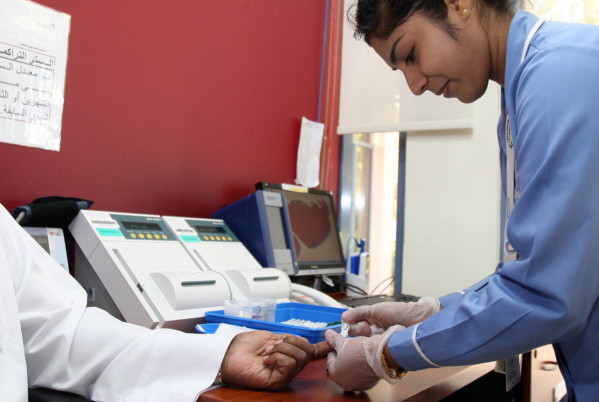
From the moment I completed my professional training as a general and psychiatric nurse in Dublin, Ireland, my dream was to work abroad and make a difference in the industry, not only as a health care professional but also as a woman.
If I was asked how women today can be encouraged to be leaders in health care, an important element is identifying those who have potential and nurturing that. At the 18th Global Women in Leadership (WIL) Economic Form in 2016, Hoda Abou Jamra, founding partner of TVM Capital Healthcare Partners and founding chair of the GCC chapter of the 30% Club, spoke about the importance of young girls being mentored, and I couldn’t agree more. The raw material and desire to succeed and make a difference has to be there. Our job is then to grow and sponsor those traits.
While women make up a large number of the nursing community, locally and across the globe, we cannot ignore the disparity number of male and female leaders in the health care sector as a whole — I believe there is a significant amount of scope here for females to climb the ranks into executive management role across all the industry sectors.
Many women leaders have already made significant contributions within the nursing environment in the Middle East — they pave the way for others across all health care divisions including MedTech and government organisations. If I look at inspirational leaders I have met over the years here, Ayesha Al Mehri, current President of the Emirates Nursing Association, has played a significant role in strengthening the role of nursing, and creating a positive vision for the future; while Dr Fatima Al Rifai, Director of the Department of Nursing at the Ministry of Health, widely regarded as ‘The Mother of Nursing’ in the UAE, has been fundamental in driving the provision of high quality nursing education and care in the region.
It is also important to mention the late Salma Al Sharhan, the first Emirati woman to take up a career in nursing. Sharhan overcame gender stereotypes and inspired a new generation of local women medical practitioners. As a shining beacon in nursing, her legacy still motivates thousands of young women to enter the profession. These women, and many more, prove that women have a lot to offer in health care leadership, yet there still appears to be a gender gap within the workplace globally. The 2016 Women in the Workplace report, which examined gender disparity in companies showed only 43 per cent of women think becoming a top executive will significantly improve their ability to impact the business, compared to 51 per cent of men. The same report also highlighted a lack of confidence in women, with half of women reporting they interact with a company leader weekly, compared to 62 per cent of men
Ensuring gender parity
While the outlook for GCC is positive — more women have advanced into leadership positions in the past decade than ever before — ensuring gender parity in senior positions is crucial for the growth of workplaces, particularly in traditionally male dominated fields such as STEM (science, technology, engineering and maths).
In health, costs are tight, time is limited and patient welfare comes first. It is arguably skills, not gender, which matter, when it comes to the provision of high quality patient care. However, it is important that women in health care also take the time to stimulate and encourage each other to do more.
I personally lead a workforce which includes clinical strategists and clinical sales associates. These positions are rewarding and challenging in equal measure, but I see my associates (mostly female) joining forces to make a positive impact on health and care each day.I believe that instilling an ethos of collaboration, partnership and determination in the workforce will make a real difference to the way they will see their futures, and will hopefully diminish the gap between male and female leaders in our industries.
During the upcoming third Mena MedTech Forum, which takes place between March 8 and 9, we will address gender diversity and discuss ways to harness solid female talent, and inspire more Fatimas, Ayshas and Salmas. After all, as His Highness Shaikh Mohammad Bin Rashid Al Maktoum, Vice-President and Prime Minister of the UAE and Ruler of Dubai, has said, “a place without women is a place without spirit.”
Deirdre Stewart is senior director and chief nursing officer at Cerner Middle East.








